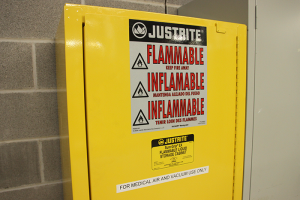Checklist
ASHE Advocacy Report highlights codes and standards
www.ashe.org/resources/pdfs/ashe_advocacy_report_2014.pdf
The American Society for Healthcare Engineering recently released the 2014 edition of its ASHE Advocacy Report as a free, downloadable PDF document. The report covers important compliance topics such as managing barriers, smoke compartments and the importance of working for better regulatory codes and standards, among others. It also gives an overview of the different accreditation organizations, their capabilities and their areas of influence.
CDC issues Ebola guidance for the hospital setting
www.cdc.gov/vhf/ebola/hcp/infection-prevention-and-control-recommendations.html
The Centers for Disease Control and Prevention (CDC) recently recommended standard, contact and droplet precautions for patients with known or suspected Ebola hemorrhagic fever. The recommendations focus on the hospital setting, but the recommendations for personal protective equipment and environmental infection control are applicable to any health care setting, according to the CDC. More than 700 people have died from the virus in West Africa, but CDC officials have said there remains "little risk to the U.S. general population at this time."
Joint Commission offers advice on sprinkler maintenance
www.jointcommission.org/assets/1/23/jconline_July_30_14.pdf
The Joint Commission in its July 30 online newsletter published tips for maintaining automatic sprinkler systems. "Health care organizations must test and maintain various sprinkler system components to ensure optimal performance," the article states. "Several elements of performance in the Environment of Care standard EC.02.03.05 delineate which tests are required and with what frequency automatic sprinkler systems should be tested and maintained." The article discusses technical requirements of compliant sprinkler systems as well as record-keeping requirements.
Joint Commission module aims to reduce LTC infection rates
www.jointcommission.org/HRipcLTC.aspx
The Joint Commission recently introduced a free online educational module that shows how to apply the principles of high reliability to reducing infections in long-term care settings. The centerpiece of the project is a 50-minute e-learning tool that includes examples, quizzes, discussion questions and other resources for nursing home and assisted living staff to learn and test their knowledge about high reliability in health care.
AHA urges USP to revise proposed drug-handling chapter
www.aha.org/advocacy-issues/letter/2014/140801-cl-usp-draftchapt800.pdf
The American Hospital Association (AHA) has urged the United States Pharmacopeial (USP) Convention to revise its proposed new general chapter on hazardous drug handling "to allow for alternative approaches that keep health care personnel safe and minimize the need to make major renovations to the health care facility." Many of the proposed requirements lack "well-founded evidence," including the "fundamental gap" that USP "does not have, and therefore cannot take into account, the qualified acceptable exposure rates for hazardous drugs," wrote Linda Fishman, AHA senior vice president of public policy analysis and development. Thus, the chapter "cannot appropriately balance the cost of the proposed changes to engineering controls and other requirements with benefits to employee health and safety," according to Fishman.




